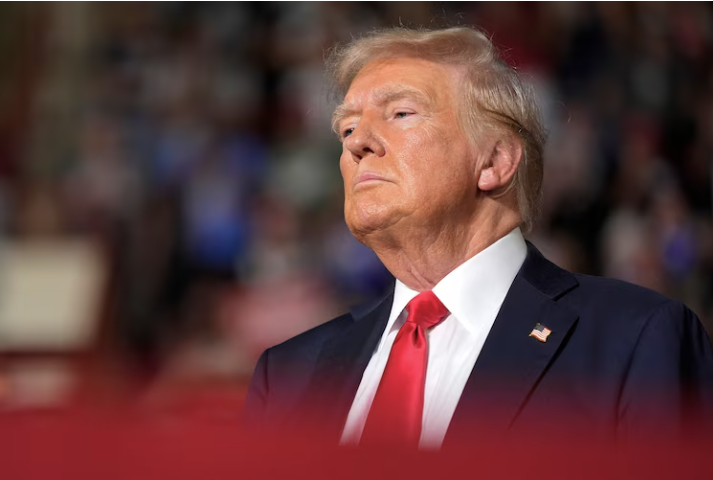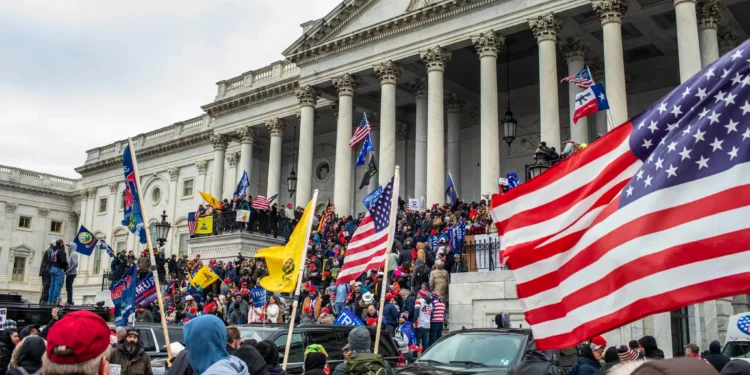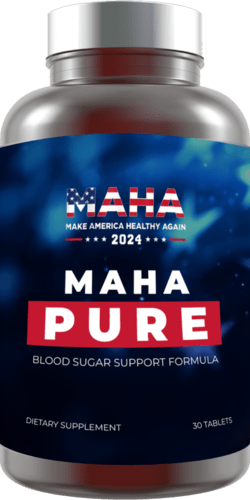New Evidence Against Trump
Special Counsel Jack Smith has unveiled the most detailed account so far of former Donald Trump’s attempts to the 2020 results. The court spans 165 pages. It outlines how Trump and his associates allegedly worked to spread a false narrative about widespread voter fraud, even when Trump privately recognized he had lost. This conduct led to the events on January 6, 2021. On that day, Trump urged his supporters to march to the Capitol to impede the certification of President Joe Biden’s victory.
Judge Tanya Chutkan, who oversees the federal election case in Washington, D.C., ordered parts of this filing to be unsealed. The document builds upon what was already known. It highlights that Trump acted in his personal capacity as a candidate rather than as a sitting president. This distinction removes the usual immunity granted to officials for actions taken while in office. The Supreme Court’s ruling from July 2023 is crucial here; it broadly protects presidential acts but allows for prosecution if those acts relate to private schemes.
New Evidence in Federal Election Case
In these court papers, Smith described Trump’s actions as increasingly frantic, accusing him of creating chaos to cling to power. The special counsel pointed out that Trump’s public claims of voter fraud—claims he made repeatedly in speeches, interviews, & social media—contrasted sharply with his private conversations. Notably, Trump labeled fraud allegations as “crazy” and ignored legal advice warning him that his lawsuits against the election results would not succeed.
A significant detail revealed is Trump’s reaction to the violence on January 6. As rioters stormed the Capitol, Trump tweeted that Vice President Mike Pence had let him down. Prosecutors argue this tweet incited an already angry mob, some members even threatening Pence’s life. When an aide informed Trump about the potential danger to Pence, he responded indifferently with, “So what?” This chilling reply, according to grand jury testimony, shows Trump’s lack of concern for his vice president’s safety while still focusing on undermining the election results. | New Evidence

In this July 31, 2024, file photo, Republican presidential candidate former President Donald Trump waits on stage to speak at a campaign rally, in Harrisburg, Pa
There are more interesting revelations! One discusses a mid-November 2020 conversation between Trump & Pence. In this private talk, Pence encouraged Trump to accept his defeat & think about running for president in 2024. However, Trump dismissed this idea by saying, “2024 is so far off.” He opted instead for questionable legal strategies to overturn election results across key states. This included using fake electors. Many of these individuals were recruited by Trump’s legal team with plans to create alternative slates for Congress.
Giuliani played a big part here! His role was central in moving these plans forward. Yet behind closed doors, Giuliani & others admitted their voter fraud claims were groundless. Still, they pushed these untruths both in courts & through public remarks. Plus, Trump’s refusal to pay Giuliani unless he managed to overturn the election underscores how transactional their approach was.
The filing also brought new details from planning meetings held at the White House ahead of January 6. These talks involved Trump alongside legal advisors & various campaign officials. A staffer—referred to as “P9″—told Trump that Giuliani’s legal challenges were unlikely to succeed and called fraud claims “crazy” or “illegal.” But Trump wouldn’t budge; he insisted the legal fight must carry on! Just days before Election Day, a political advisor advised him not to claim victory too soon—a suggestion he ignored when he declared himself the winner before all votes were counted.| New Evidence
Smith’s filing emphasizes Trump’s actions on January 6 as critical for prosecutors. It includes plans for witnesses like state election officials and staff from Trump’s White House to testify in court about his efforts to pressure them into overturning results in key states. The prosecution will present evidence too—things like Trump’s infamous tweets—to prove his direct role in inciting post-election violence.
A significant point in Smith’s argument is that Trump’s actions weren’t part of presidential duties; they were instead motivated by personal desire for power. Smith argues that executive authority doesn’t include deciding election outcomes; rather, Trump’s actions aimed at sabotaging constitutional processes and keeping himself in office against voters’ will. | New Evidence
In defending their pursuit against Trump, Smith’s team seeks to separate his actions from typical immunity granted during official roles. According to Smith, what Trump and his associates did wasn’t tied up with executive duties but stemmed from personal & political drives. | New Evidence
Trump’s legal team has opposed this filing release vehemently. They argue it’s like an early “special counsel report” which could sway public opinion ahead of the 2024 elections unfairly. They insist this case is politically charged & should be thrown out completely.. Meanwhile, Trump maintains that all this is part of a larger “witch hunt” against him. | New Evidence
As these legal matters progress, Judge Chutkan must determine how much of this indictment can go forward based on the Supreme Court’s ruling. Prosecutors are optimistic! They believe much of their case falls outside presidential immunity since it relates much more closely to Trump’s actions as a candidate rather than while serving as president. They argue Trump’s behavior violated fundamental democratic principles and sought personal gain by undermining constitutional processes.
This case doesn’t just impact Trump; it carries huge weight for our broader political scene too! With him still vying for the Republican nomination for 2024, these ongoing legal struggles have become major talking points across the nation. Whether or not he will stand trial before the next election remains uncertain—but Smith’s latest filing reveals more details that make Trump’s path back to the White House even trickier.
To sum up: Special Counsel Jack Smith’s latest court filing presents the fullest account yet of Donald Trump’s efforts to overturn the 2020 election. The 165-page document argues that Trump acted in his personal capacity as a candidate, using his campaign to push false fraud claims, which prosecutors say undermines constitutional principles. Evidence includes witness testimonies, private conversations, and Trump’s tweets from January 6, 2021, aimed at pressuring Vice President Mike Pence. The filing seeks to clarify that Trump’s actions are not protected by presidential immunity, as they were politically motivated.

























